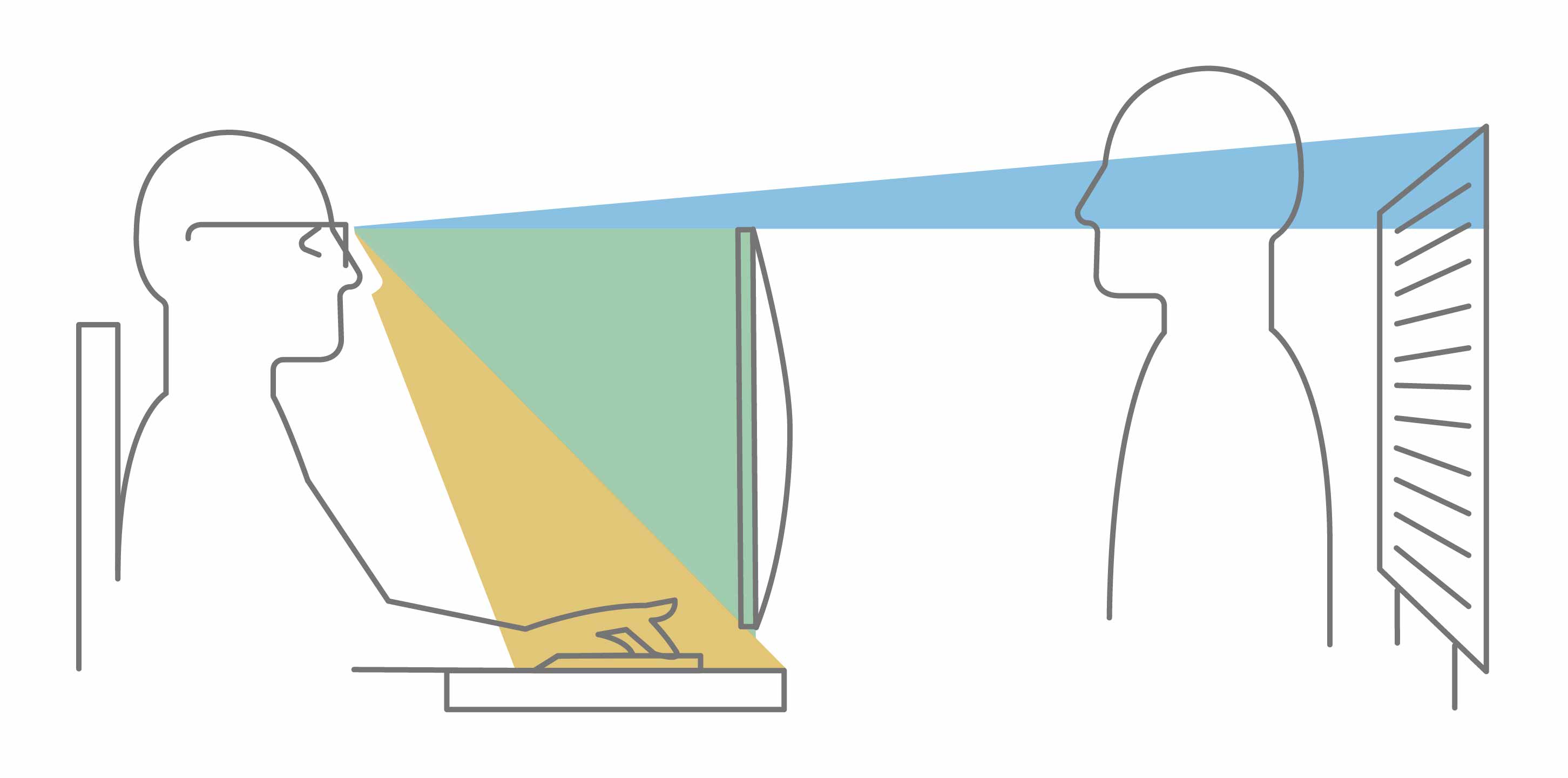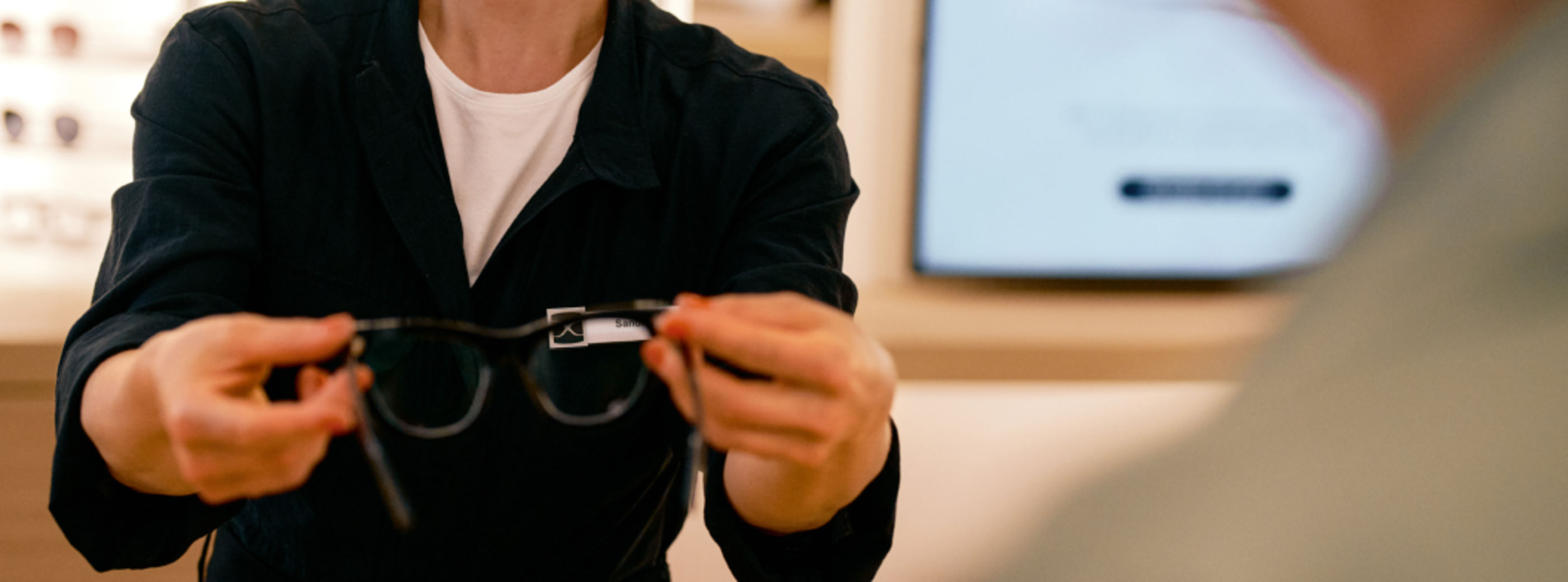
Computer glasses guide
Guide to glasses for computer use
Many people work behind a screen daily. It is therefore a good idea to wear glasses that make working at the computer easier and thus reduce discomfort. But how do I know if I need computer glasses (also: screen glasses)? These and many other questions are addressed in the following guide.
1. How do I know if I need computer glasses?
People who work behind a screen often suffer from complaints such as fatigue, itchy or burning eyes, head or neck pain. As a result, concentration and performance suffers. The symptoms often arise because the work environment is not optimally designed or because the glasses are not adapted to the workplace. This is where computer glasses can help. It is easy to find out whether you need computer glasses. Analyse your behaviour when you are at work. For example, do you have trouble reading the keyboard or your notes, or simply cannot find a comfortable working posture at the computer. Those are clear indications that you need computer glasses.
2. What characterises computer glasses?
"Regular" computer glasses are equipped with so-called single vision distance lenses that are designed to cover the entire work area near the screen. This refers to a distance that encompasses the screen but does not exceed one meter. Objects and people that are further away are perceived more poorly. The computer glasses from Mister Spex have so-called "spatial comfort lenses", in which the centre is optimally adjusted for the distance to the screen, ensuring perfect visibility of the screen. But computer glasses can do more: they also offer clear vision in areas in the immediate vicinity of the screen, so you can look around the room comfortably as well as see documents, keyboard, and everything else on your desk.


In addition, at the upper edges of the lenses there are areas allow you to see into the distance if needed. Computer glasses are therefore real all-rounders with which you can look beyond just your work environment. Even for gardening, hobbies and in the private life, these spatial comfort glasses are invaluable. The price is determined as follows: Price of the frame plus £109.95 extra for the lenses.
Note: please note that computer glasses are not suitable for driving.
3. How are computer glasses different from other glasses?
Although varifocal glasses are a great everyday companion, they specialise in the near and far range and can therefore reach their limits when working on a computer screen. The progression zone, which is the central zone of the lens dedicated to intermediate distances, is usually too small to ensure optimal visibility on your screen, requiring you to always have to lift your head slightly. In addition, the peripheral areas of varifocal lenses are quite large compared to those of computer glasses, which sometimes prevents you from seeing things on your workstation optimally.


Reading glasses are only aimed at the immediate close-up area; they do not cover screens and everything beyond. Glasses with single-vision lenses for short- and long-sightedness also only optimise vision in the respective area. While they can be used for screen work, they are not designed for the near or intermediate area, where most office work is performed.
Computer glasses, on the other hand, are optimised for daily computer work and offer better visibility on your screen, keyboard, objects, as well as people in the vicinity.
4. Tips for good vision in the work environment
Even without computer glasses, you can improve your vision in the work environment by taking a few simple steps:
Make sure you have the right desk, an ergonomic chair and the right keyboard with an optimised mouse. Find out how to best adjust your office chair.
Adjust the brightness of your computer screen so that you're not dazzled.
Adjust the tilt angle of the screen according to the distance to your glasses and align it so that there are no annoying reflections from ceiling lights or windows.
Do not forget to ventilate regularly so that the humidity is neither too high or too low. Fresh air is important to prevent dry, irritated eyes.
5. Blue light filter technology - protection for your eyes
Screens of computers and laptops, as well as smartphones and tablets, emit high-energy blue light - so-called HEV light. Overexposure can lead to symptoms such as dryness and fatigue in the eyes. It is also suspected that prolonged exposure to blue light can cause long-term damage, for example in the retina. The blue light filter technology is an additional coating on the lenses that blocks HEV light and thus prevents too much of it from reaching the lens of the eye and retina.













/hp-hero-slider-transition-lenses)



